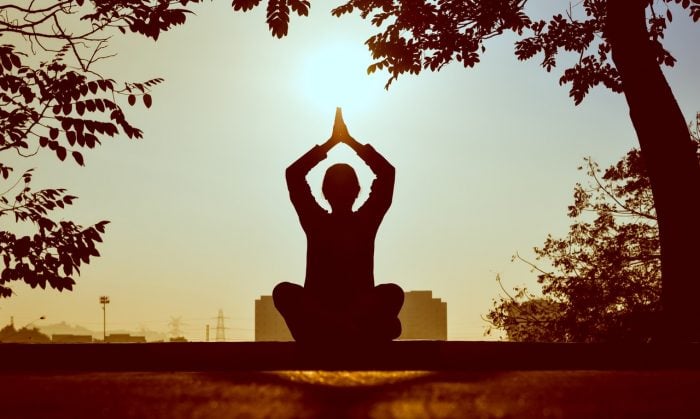A healthy and holistic lifestyle is not just about exercising, eating right, or managing your weight. While all these things and everything that is needed to maintain your physical well-being is part of it, the scope of holistic living is so much more.
True to its name, health holistic is a life approach that takes into account the “whole” person. It is not just concerned about your physical body, but your mental and spiritual wellness as well and how your entire person relates to the world. The end goal of this lifestyle to help you live a full life and to be the best version of yourself.
What is the Origin of Holistic Living?
The concept of holistic lifestyle probably originated from the healing practices of ancient Asian civilizations, particularly from the countries of China and India, beginning 5,000 years ago. People from this time espouse a healthy way of life as well as natural treatment practices that seek to mend the mind, body, and spirit. They also live in harmony with nature and their environment.
The importance of addressing the treatment needs of the whole person rather than just healing a specific part of the body had been stressed by Greek philosopher Socrates as well. He posited that many physicians were unable to treat many illnesses because of their failure to consider the whole person in the process. Socrates asserted that “the part can never be well unless the whole is well.”
The word “holism” was coined by philosopher Jan Christiaan Smuts in 1926. Smuts stressed that it is impossible to gain a complete understanding of the whole by merely knowing the parts because (as gestalt psychology put it), “the whole is more than the sum of its parts.” By the 1970s, the term “holistic” was already a household word.
Nevertheless, the idea of a holistic lifestyle briefly lost favor during the 20th century due to the advancements in medical science. The onset of modern medicine led many people to believe that they could make unhealthy lifestyle choices and not suffer the consequences. They came to feel that they could rely on drugs when health problems arise.
Unfortunately, time revealed how many modern medical cures, such as prescription drugs, can lead to more serious health issues, even death. For this reason, people are once again looking at the holistic way of life as they search for a healthier alternative to attain long-term wellness.
Key Points About a Holistic Lifestyle
If you are wondering what exactly does it mean to live holistically, here are some key points you should know when adopting a holistic lifestyle:
-
The focus is on maintaining balance and harmony. Your body is made up of four different dimensions: physical, spiritual, and mental and emotional (psychological). In a holistic point of view, these dimensions should be balanced and working in harmony for you to achieve overall well-being. As one dimension suffers, the rest are also negatively affected, which is why healing strategies should look at all dimensions to address the root problem.
For instance, if you are feeling extremely anxious because of a math exam, you can experience some physical manifestations like sweating or a headache. In holistic living, you will take care of your aches and pain by examining all aspects of yourself, not just your physical body. This means that you may carry out relaxation techniques to relieve your anxiety and bring back balance and harmony.
-
It is a continuous and unending process of getting better. Commitment is needed when you adopt a healthy and holistic lifestyle because it has no end. If you started living holistically because you are sick or trying to manage your weight, you are not expected to revert to your old habits when your immediate health problems have ended, or you have lost weight.
As mentioned above, the goal of a holistic lifestyle is to help you achieve the best version of yourself. For this reason, you will go on living holistically so you can reach the best life possible, progressing one step at a time.
-
It is more than just preventing diseases or eliminating symptoms. While anything that stops you from getting sick or makes being sick more tolerable is welcome, that’s not all holistic health is about. Holistic living will move you to desire much higher levels of wellness. Instead of popping a pill to get rid of pain, your pain will serve as a cue to know what aspect of your life is truly hurting. Through the holistic approach, you will have the chance to address the root cause of the problem rather than just focusing on the signs.
-
It is about making the right choices for yourself. Adopting a holistic lifestyle will train you to be responsible for your own well-being. This way of life emphasizes the need for you to make the right choices faithfully that will benefit your body, mind, emotions, and spirit.
Benefits of Adopting a Holistic Lifestyle?
Since the holistic lifestyle demands better and healthier choices for your entire being (e.g., natural food, regular exercise, connection with nature, etc.), it offers numerous benefits, including:
-
Better overall health. In general, people who have been living holistically are healthier
-
More energy.
-
A more positive outlook on life.
-
Are more excited to live their daily lives.
-
Maybe longer lives. One study on the holistic approach to aging revealed that adopting this lifestyle can even help extend lifespan among the elderly.
How to Start Living a Holistic Lifestyle
Here are some tips that you may want to consider as you start your holistic lifestyle journey:
-
Be Consistent. It would be impossible for you to experience the benefits of a holistic lifestyle if you are not planning to live holistically hereafter. Adopting this lifestyle means you are ready to abandon your old way of life and move towards better health and wellness every day.
-
Practice with Small Choices. You do not have to sign up for yoga sessions or start a vegan diet right away. Start by honing your decision-making skills first. For instance, when deciding what type of food you will eat, choose a nutritious snack over a slice of chocolate cake.
-
Acknowledge the Importance and Innate Strength of Your Body. Your body has the mechanisms to heal itself naturally. It is powerful and strong beyond your recognition. Learn to harness this power to your benefit by first respecting your body and taking care of it.
-
Feed your body and mind with healthy choices. Respecting your body means being mindful of what you put in it. Avoid processed food and eat more natural fruits, vegetables, and meat prepared at home. As you try to be selective about the food that you eat, be cautious about what you feed your mind as well.
-
Control Your thoughts and emotions. You alone can completely control you. Learn to manage your emotions by acting instead of reacting to everything. Be mindful of negative thought patterns and follow strategies that will develop positive and healthy thinking.
Stay active. Your body is not designed to always be sitting or lying down. Start an exercise regimen to keep your body moving. This small change will help improve your physical health, psychological wellbeing, and overall wellness.












Read 0 comments and reply